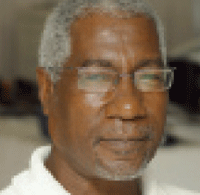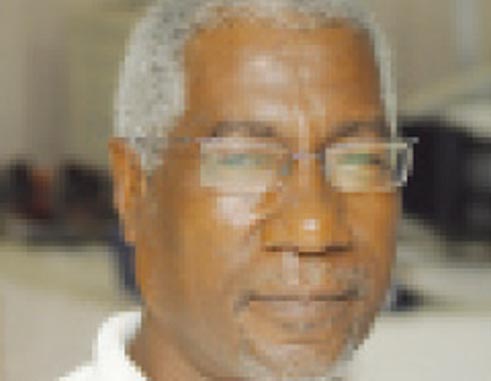
THE US Department of Homeland Security has been advised to end by January 2018 temporary protection enjoyed by over 50,000 Haitians originally allowed to seek refuge in the USA following a series of natural disasters that effectively crippled the small and impoverished Caribbean country over the past 12 years.
James McCament, Acting Director of the US Citizenship and Immigration Service, in a letter to US Homeland Security Secretary, James Kelly, at the end of April 2017, concluded that conditions in Haiti have improved enough to end the “temporary protection status” specially afforded the thousands of Haitians fleeing poverty and devastation.
At the same time, also claiming the security situation has improved after a long presence in Haiti, United Nations (UN) peacekeeping troops are also being withdrawn (as of September 2017).
The two events may seem unrelated. But, put together, they add to the grief and anxiety affecting millions in what is still the poorest nation in the Western Hemisphere.
Hundreds of thousands of Haitians fear that if the UN troops actually leave without addressing their demands for justice, the world’s largest multinational organization may just walk away scot-free of responsibility for two major disasters that took too many lives to be officially excused.
The recommended deportations from the USA will also only add to the complex situation facing the Haitian government and its impoverished vast majority.
But to fully understand the gravity of the unfolding situation, Haiti’s history must be briefly revisited.
French-speaking Haiti (27,700 square kilometers) is a small country of just under ten million people that shares the island of Hispaniola with Spanish-speaking Dominican Republic (48,671 square kilometers).
However, Haiti is best known as the world’s first Black Republic where slaves, led by Toussaint L’Ouverture, rebelled in 1791 and proudly declared their independence in 1804.
Not even in Africa had a free nation yet been born and the humiliated slave masters enlisted the support of the French government to make the former slaves pay dearly for their freedom.
In 1825, France demanded 150 million Gold Francs to recognize Haiti’s independence, which sum was later reduced to 90 million — the same amount demanded in compensation by the former slave masters.
Historians and economists agree that this high cost paid by Haiti to France over 122 years (payments continued until 1947) is largely responsible for the country having been anchored in poverty for almost all of its 213 years of nationhood.
In 2003, Haitian President Jean Bertrand Aristide called on Paris to return the 90 million Gold Francs, by then estimated at US$21 billion. Soon after, however, he was swiftly and secretly taken hostage by US and French forces and exiled to South Africa.
French President Francois Hollande, in May 2015, ahead of a visit to Port au Prince, said Paris would repay its debt to the island – only to later retract, saying he only meant repaying France’s “moral debt” to Haiti.
Poverty has dogged Haiti for over two centuries. But as if that wasn’t enough, the poor nation has also had its unfair share of costly natural and man-made disasters.
In 2004, Hurricane Jeanne killed 3,000 people; and in 2016 Hurricane Matthew took over 1,000 lives, destroyed 20,000 houses and displaced over 1.4 million people. But by far the worst was the January 10, 2010 earthquake (of 7.3 magnitude) that took over 220,000 lives, injured 300,000 and left 1.5 million homeless.
A health crisis of catastrophic proportions also hit Haiti in 2010, after UN peacekeepers dumped cholera-infected sewage into a river, resulting in 9,300 deaths and over 800,000 people affected.
Today, the UN stands twice accused in Haiti: facing demands for legal recourse from families of cholera victims, as well as victims of later alleged sex crimes by peacekeepers involving use of food as a weapon for sex.
Successive UN Secretaries General have fought hard to shirk organizational responsibility and save the world body facing court claims for compensation for death and other damages caused by its troops in Haiti.
Peacekeepers are shielded from legal claims by UN immunity from prosecution, a policy applied to Haiti under previous Secretary General Ban Ki Moon, and continued under his successor Antonio Gutteres.
The UN acknowledges awareness of the problems caused by its troops in Haiti, but simply refuses to allow its staff to cooperate with investigators. Now there’s the strong possibility that victims will not have their cries for justice heard.
The $346 million UN Haiti Mission (MINUSTAH) is one of the longest-running in the world, but the Security Council voted unanimously April 13 to end its 13-year stay there in just six months.
Haitians indeed feel abandoned today, with the world’s attention everywhere else.
Its cholera victims and others seeking justice, as well as those now being lined-up for deportation from the USA, continue to pray that official UN diplomatic immunity will eventually be revoked sooner than later and that the US immigration officials will be dissuaded from deporting 50,000 Haitian refugees returning them to the poverty and misery from which they thought they had been rescued.













